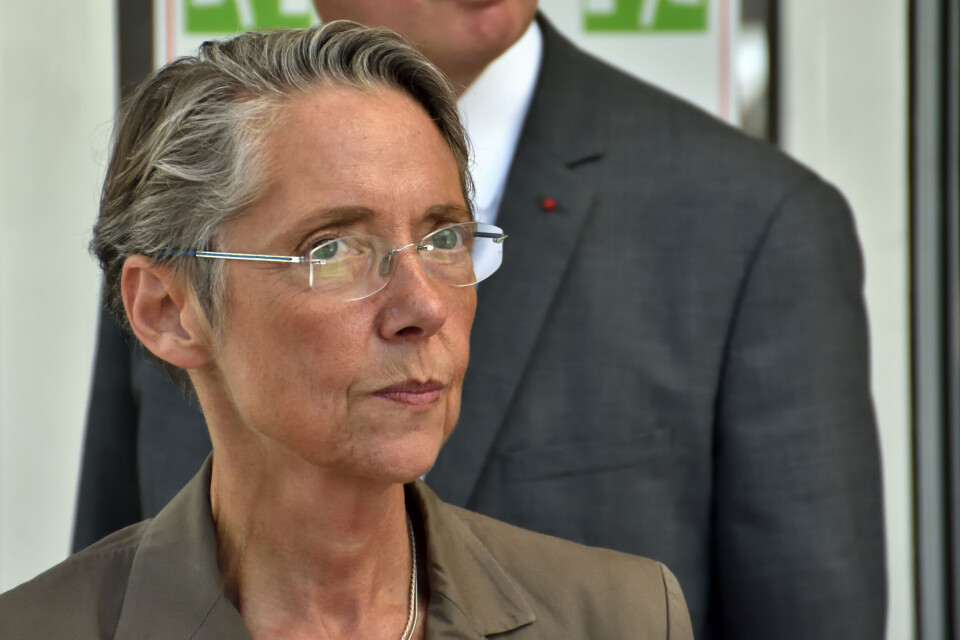-
La Voie Bleue: European Cycle Route of the Year is in France
700km bike path linking Luxembourg and Lyon has been crowned winner of the 2026 title
-
Before and after: Garonne river floods in south-west France
Satellite images show extent of flooding from back-to-back storms in February
-
Home insurance increases expected in France after floods
Compensation costs for the recent storms and flooding across the west and south-west is estimated to be in the billions of euros
French election fallout: Macron refuses to accept PM’s resignation
The president is now scheduled to receive representatives from different parties in a bid to find ‘constructive solutions’ to lack of parliamentary majority

President Emmanuel Macron has refused to accept PM Elisabeth Borne’s resignation, as he receives opposition parties at the Elysée today (June 21) to discuss potential routes forward after the legislative elections failed to return an absolute majority for his Ensemble ! coalition.
Read more: Macron misses out on absolute majority in French legislative elections
Newly-appointed Prime Minister Ms Borne tendered her resignation this morning, but Mr Macron refused to accept it, and is set to seek “realistic constructive solutions” instead, he said.
However, former UMP minister Rachida Dati was scathing, telling Le Figaro: “[Ms Borne] is already worn out. If she stays, Macron has chosen stagnation. He is stepping over [her authority] in choosing to meet party leaders himself. That says a lot. She is always under supervision.”
Meanwhile, Christian Jacob, president of les Républicains (LR), is the first to visit this morning, while la France Insoumise MPs Adrien Quatennens (party manager) and Mathilde Panot (party president) are scheduled to visit tomorrow.
The president is also set to meet Olivier Faure (PS), François Bayrou (MoDem), Stanislas Guerini (Renaissance, which was formerly La République en Marche), Marine Le Pen (RN) and Fabien Roussel (Parti communiste).
President Macron is likely to be seeking ways to form a coalition in France to help his party form a majority in the Assemblée Nationale. His entourage previously stated that the “aim of these meetings is to exchange views in the best interests of the nation and build solutions for the French people”.
Read more: Easy-look graphic: how seats in France's new parliament are divided
Read more: Will Macron dissolve parliament over MP loses? Two experts give views
But Mr Jacob has ruled out such an agreement for his party. He said: “The answer will not be in the tricks and schemes. Those who trusted us did not elect us so that we become part of Emmanuel Macron's government."
However, LR MP and mayor of Meaux, Jean-François Copé, said: “For weeks, I have been saying that a government pact is vital between Macron and LR, to fight against the extremes. The extreme left and the extreme right are absolute dangers for France. They both represent violence, tension, and sectarianism.”
Mr Faure appeared slightly more conciliatory. He told FranceInfo that he planned to say to Mr Macron that “the country isn’t doing well, it is angry, but it is not blocked. There are possible policies. If he wants to make Smic [minimum wage] to €1,500, and re-evaluate retirement pensions, we will be there”.
However, he said: “The French people have sent a very clear message. They did not want Emmanuel Macron. There has been no blank cheque written. Emmanuel Macron will have to learn to work with the ideas of others.”
Ministers have not ruled out working with any party.
On the France 5 programme C Ce Soir, Renaissance MP Céline Calvez said that the government could even go towards the far-right Rassemblement National in the event of needing extra votes.
She said: “When we need to have a majority, and if it is in the interests of the French people, we will [happily] go and get votes from the Rassemblement National.”
The government is also set to decide the key positions in parliament, including the presidency and head of the finance committee.
The RN is claiming that the latter especially should belong to them, given their 89 new MPs, but this is not automatic, and has not yet been decided.
The calendar for the first few weeks of the new parliament is scheduled to look like this:
-
Monday, June 20 to Friday 24 - MPs to be invited to the Assemblée nationale to confirm their election, and have their official portraits taken. Elections of party presidents.
-
Tuesday, June 28: First public session and election of Assemblée nationale president. Outgoing president and loyal Macron follower Richard Ferrard had wanted to continue his role, but he lost his seat in the second round of the legislative elections.
-
Wednesday, June 29: Election of Assemblée nationale administration and committees. Normally reflects the composition of parliament. The finance committee must be led by an opposition party.
-
Thursday, June 30: First meeting of parliamentary committees, and their respective presidents and vice-presidents.
-
Tuesday, July 5: PM presents general policies to MPs.
-
Weeks of July 11 and July 18: Presentation of first legal policies. The first are expected to relate to continued ‘braking measures’ against Covid-19, and measures on purchasing power.
-
August 9: Final day of extraordinary summer session in parliament to allow for the purchasing power bill to be passed.
Related articles
MAP: Which areas of France have elected the 89 new far-right MPs?
























